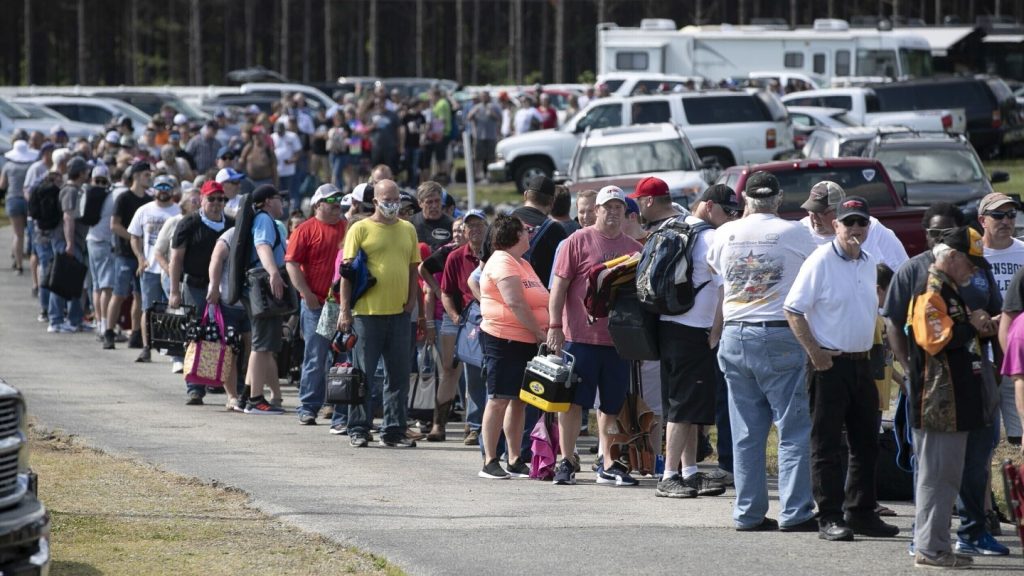The North Carolina Supreme Court ruled that a racetrack in Alamance County can sue the state’s top health regulator on allegations that Governor Roy Cooper’s administration violated their constitutional rights during the pandemic. The court agreed that the racetrack’s claims seeking financial damages can continue, as they allege that the state’s actions were a violation of their rights. The lawsuit was filed after the racetrack was ordered to stop holding events that did not comply with the state’s gathering limits.
State lawyers argued that the racetrack was repeatedly violating the law by holding events with large crowds, and that the gathering limits were in place to protect public health during the pandemic. However, the Supreme Court agreed with the racetrack’s attorney that the state infringed on their rights and engaged in selective enforcement of the order against them. The case now returns to trial court to be heard, and the Department of Health and Human Services is reviewing the decision.
The racetrack had defied the 25-person cap on outdoor gatherings put in place by Governor Cooper in May 2020, hosting events with thousands of spectators. The racetrack operator, Robert Turner, openly opposed the restrictions and kept the racetrack open for attendees. When the racetrack continued to draw large crowds, the Cooper administration declared it an “imminent hazard” for spreading COVID-19 and ordered it to close. Turner alleged that his business was treated differently due to his vocal opposition.
The restrictions that led to the racetrack’s closure have long expired, but the legal battle continues. State attorneys argued that allowing the counterclaims to continue would hinder the government’s ability to respond to future public health crises. However, the Supreme Court emphasized that the allegations made by the racetrack must be taken as true at this stage of the case. The court also highlighted that if the racetrack was singled out for enforcement due to Turner’s outcry, then it would not have served a proper governmental purpose.
Other court cases involving the governor’s powers during health emergencies are pending, including cases filed by bar operators who were forced to remain closed while restaurants serving alcohol were allowed to reopen. The Supreme Court has agreed to hear these cases, which could address more broadly whether the executive orders issued by Governor Cooper were lawful. The ruling represents a legal defeat for the Democratic governor, as the court was composed of five registered Republicans and two Democrats.


